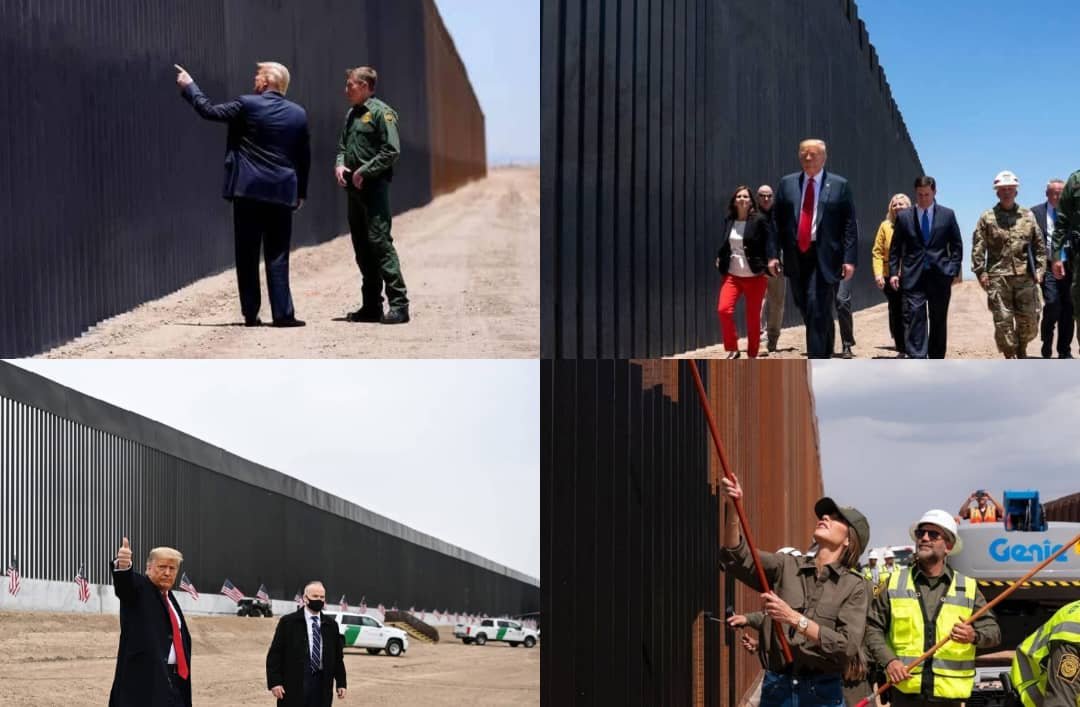“How did we get here?” is the tempting question to ask, first. Where is “here”? is a far easier poser to respond to. Falling stock prices across the world suggest it is not a pleasant place to be. Prospects of a recession in the US are far from desirable, either. But far more important is, “How do we get out of this without inflicting too much reciprocal damage?” In other words, how do we get the orange bull out of the China shop?
And so, President Donald Trump finally announced the “reciprocal tariffs” designed to lead to the liberation of the United States of America. Liberation? Yes. The way the 47th president of America understands it, the US has been “looted, pillaged, raped and plundered by nations near and far” maybe since the Second World War ended or even way before that — perhaps since the repeal of the Smoot-Hawley tariffs in the 1930s. To cast this perception of America’s putative existential challenge as would the head of an African Marxist revolutionary movement in the early sixties does, however, stretch the argument for credulity. America’s “turn to prosper” is arguably the most presumptive phrase this century.
Choose any gauge of global competitiveness (since 1945 or even 1930) and compute the US’ position on the log. The country has been top dog on just about every such measure since most people alive today can recall. Okay, log positions are always relative. All they say, for example, is that given global GDP, the US’ share is more than that of the second-placed country — China, today; several years before it was Great Britain. I guess Donald Trump would rather have an America that is primero uno in absolute terms across all metrics of national political, social, and economic health. In a sense, including through coveting Greenland, Panama, and Canada, this is redolent of Adolf Hitler’s goal in the early 1930s. Anschluss. Sudeten Germans. The Third Reich simply needed a bigger living room (that lebensraum thingy) on the back of the intolerable conditions with which it was hobbled after the First World War.
I am not too sure what the circumstances are that have hobbled the US today — the self-same concerns that have Donald Trump’s MAGA constituency in a funk. But one thing is clear, the US that experienced the Second World War had no doubt how critical global institutional arrangements are to preventing another lunatic from taking possession of an equipped state and putting the world to the sword all over again. If these arrangements mean restrictions on every country’s unlimited exercise of its full powers, humanity has been the better for it in the last eight decades.
More than 200 years ago, David Ricardo introduced the concept of “comparative advantage”, suggesting, according to one source, “that nations should concentrate resources only in industries where they have the greatest efficiency of production relative to their own alternative uses of resources.” That President Donald Trump may not be familiar with, or, if familiar with, does not agree with this concept is okay. But what about the legion of experts around him?
Donald Trump misses a lot more than this, though. His economics, for example is wonky, to say the least. Take an example that I read online last week (pace Spencer Hakimian) — the relationship between a drycleaner and his patron. Payments for the former’s service mean that the patron has a trade deficit with his drycleaner. In order to address this deficit, what should the patron do? Learn to dry-clean and do all his dry-cleaning himself? Or use the time and associated resources freed up by the dry-cleaner’s exertion to add value elsewhere? Let us suppose that the patron is a consultant paediatrician. Is society better of with him running the trade deficit with his dry cleaner in order that he may better look after its ailing children? Or would we rather have him show up at the surgery every day only after he has done his laundry?
More than 200 years ago, David Ricardo introduced the concept of “comparative advantage”, suggesting, according to one source, “that nations should concentrate resources only in industries where they have the greatest efficiency of production relative to their own alternative uses of resources.” That President Donald Trump may not be familiar with, or, if familiar with, does not agree with this concept is okay. But what about the legion of experts around him? At least the economists are familiar with it. They may also not agree. Far more worrisome is the way in which the “reciprocal tariffs” were computed. With all the legerdemain of a second-rate circus act, it invites several questions.
“How did we get here?” is the tempting question to ask, first. Where is “here”? is a far easier poser to respond to. Falling stock prices across the world suggest it is not a pleasant place to be. Prospects of a recession in the US are far from desirable, either. But far more important is, “How do we get out of this without inflicting too much reciprocal damage?” In other words, how do we get the orange bull out of the China shop?
Europe will need reforms that deepen its market — easier movement for both labour and capital, for one. Stabilising fiscal transfers, too. But China will need to stimulate domestic consumption, even as it takes the foot off the pedal for driving state intervention in key sectors of its economy, if it is to be a good faith player in the new era.
China is the operant noun, here. Much of the world’s economic health in the era of Donald Trump’s gratuitously engineered chaos will depend on deepening and broadening cooperation across economic and climate concerns. As the world’s second largest economy, this cannot be done effectively without China. Europe will need reforms that deepen its market — easier movement for both labour and capital, for one. Stabilising fiscal transfers, too. But China will need to stimulate domestic consumption, even as it takes the foot off the pedal for driving state intervention in key sectors of its economy, if it is to be a good faith player in the new era.
The rest of us will be takers of the changes that are to come. But we could do no worse than strengthen our economies, make them more resilient and flexible enough to ride changing points of inflexion in the global arena.
Uddin Ifeanyi, journalist manqué and retired civil servant, can be reached @IfeanyiUddin.
Support PREMIUM TIMES’ journalism of integrity and credibility
At Premium Times, we firmly believe in the importance of high-quality journalism. Recognizing that not everyone can afford costly news subscriptions, we are dedicated to delivering meticulously researched, fact-checked news that remains freely accessible to all.
Whether you turn to Premium Times for daily updates, in-depth investigations into pressing national issues, or entertaining trending stories, we value your readership.
It’s essential to acknowledge that news production incurs expenses, and we take pride in never placing our stories behind a prohibitive paywall.
Would you consider supporting us with a modest contribution on a monthly basis to help maintain our commitment to free, accessible news?
Make Contribution
TEXT AD: Call Willie – +2348098788999

© Premium Times









